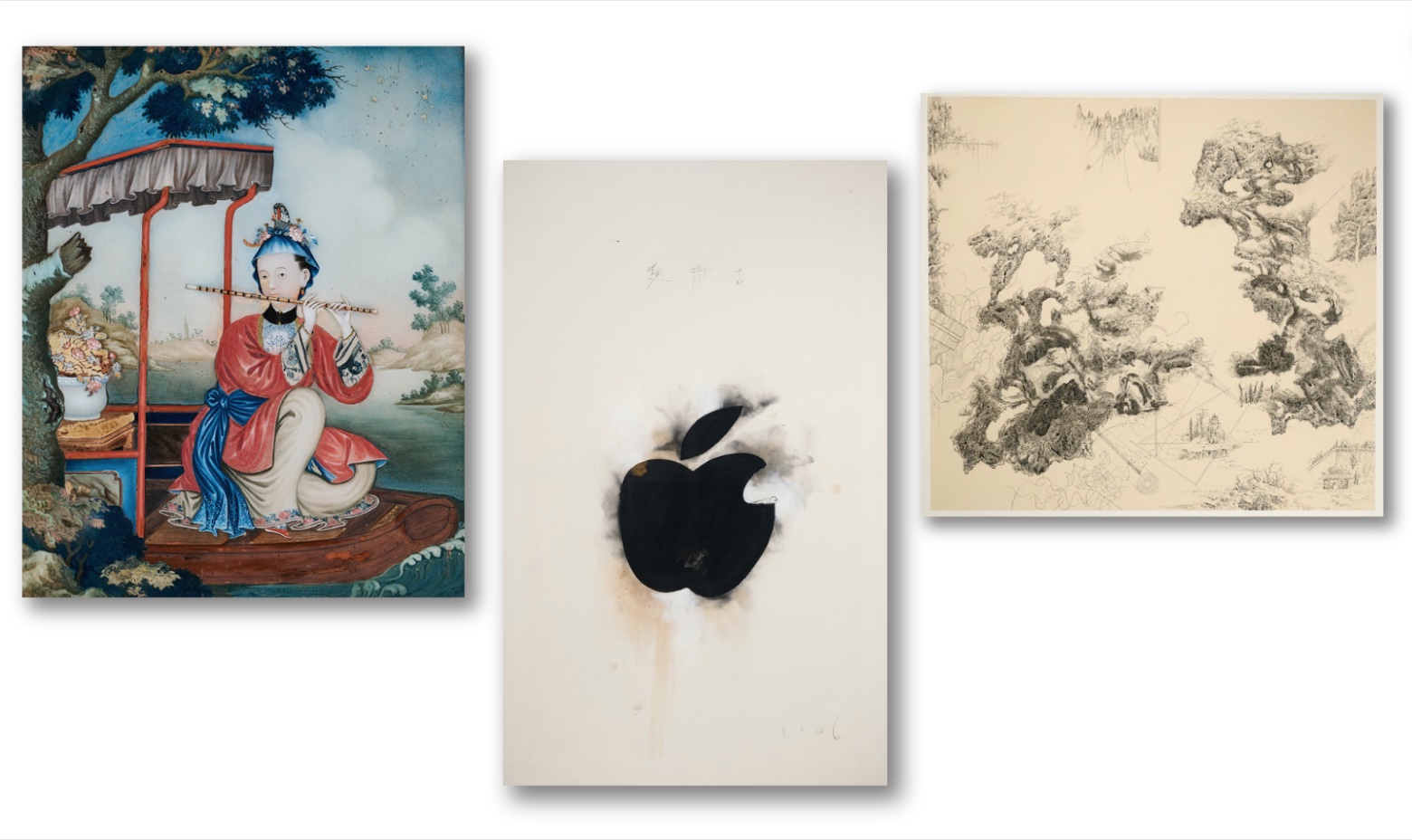#Chinese #Japanese #works #art #Olympia #Auctions #Antique #Collecting
Anyone wanting to start or strengthen their collection of Contemporary Chinese Ink Art – in which artists wildly and variously subvert the ancient medium and its traditional forms – will find works by eight very different artists in Olympia Auctions’ sale of Chinese and Japanese Works of Art on May 14.
This private collection of nine lots dating from 2002 to 2010 comes originally from the well-known London-based Chinese art dealer Michael Goedhuis who did much to establish this new collecting area. Two were in The Ortigo Collection, formed by Goedhuis and sold at a landmark Sotheby’s Hong Kong sale in 2016.
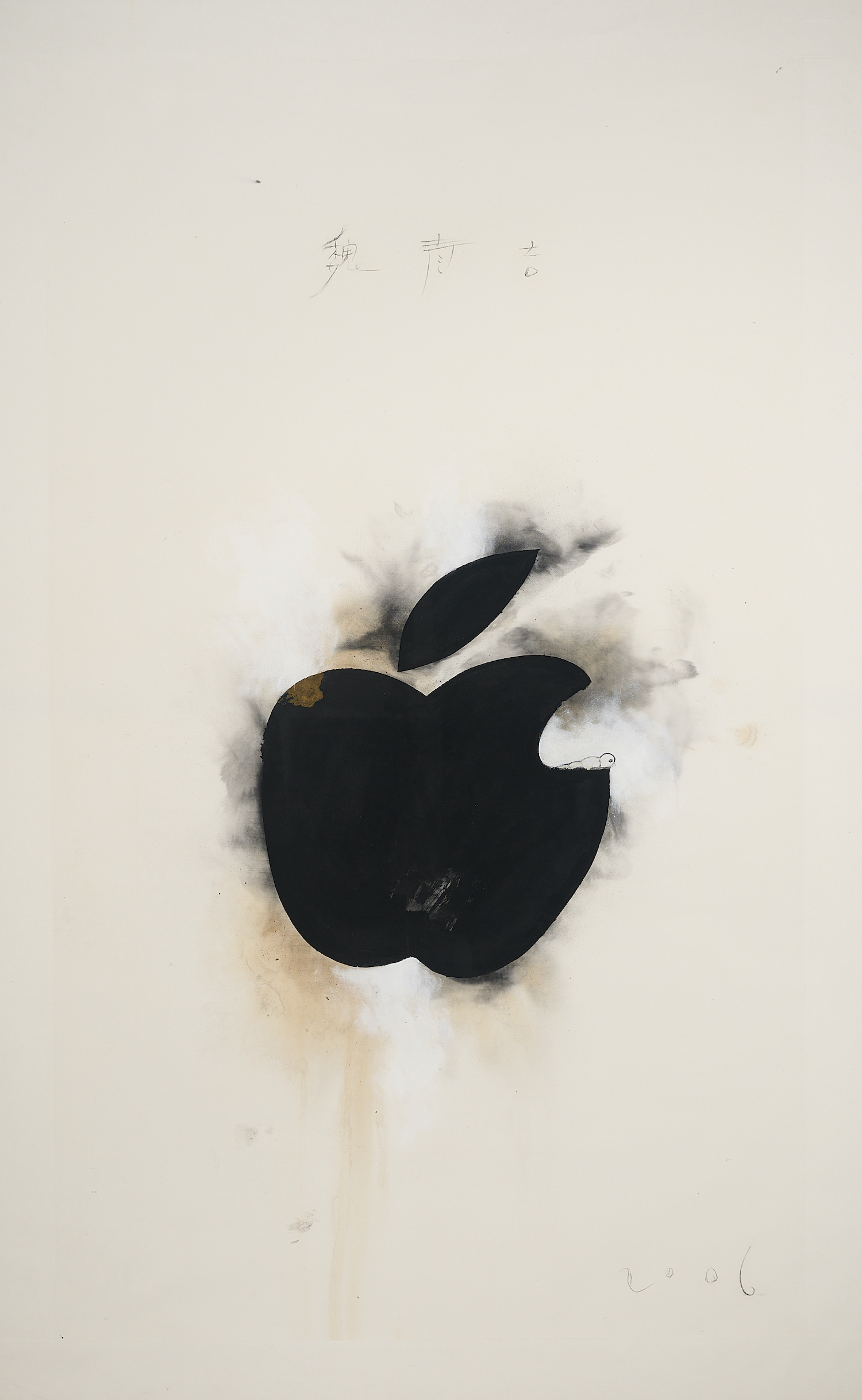
One of the most strikingly contemporary images is Apple by Wei Qingji (b. 1971), estimated at £4,000-6,000. According to Goedhuis “Wei has utilized his profound knowledge of traditional brush-and-ink painting to develop a personal style based on the dramatic incorporation of iconic brand images from the West into a stark pictorial field. He often mixes several techniques, such as splashing ink, writing, rubbing, tearing, collage, scratching, spraying, and so on, and lets intentional and accidental visual effects work out an aesthetic among themselves. Reminiscent of Anglo/American Pop art, Wei’s works have disrupted the long-established cultural connection between Chinese civilization and ink painting.”
Wei Ligang’s Up of 2010 estimated at £3,000-5,000 is the most colourful of the collection. At the forefront of contemporary ink painting’s development on the mainland, Wei’s training in mathematics has contributed to his radical abstraction of calligraphy.

Also a calligrapher, Wang Tiande is represented by one of his Digital series from 2008 in which, as Goedhuis notes, he “paints landscapes and calligraphies onto xuan paper and then enriches the images with cigarette burns. Rich in form and content, this series goes beyond any boundaries dividing painting and calligraphy”. It carries an estimate of £6,000-8,000.
According to Goedhuis, Leung Kui Ting, active in Hong Kong’s New Ink Painting movement has experimented with many different styles that synthesize classical ink painting with modern art. However, the rocks, trees, and mountains that have been the subject of the literati painters over the past 600 years have remained his principal interest. The painting, estimated at £5,000-7,000, included here has magically floating mountains, again evoking scholar’s rocks, juxtaposed with finely drawn diagrams and graphs, creating a world of tension, as well as resolution, between old and new.
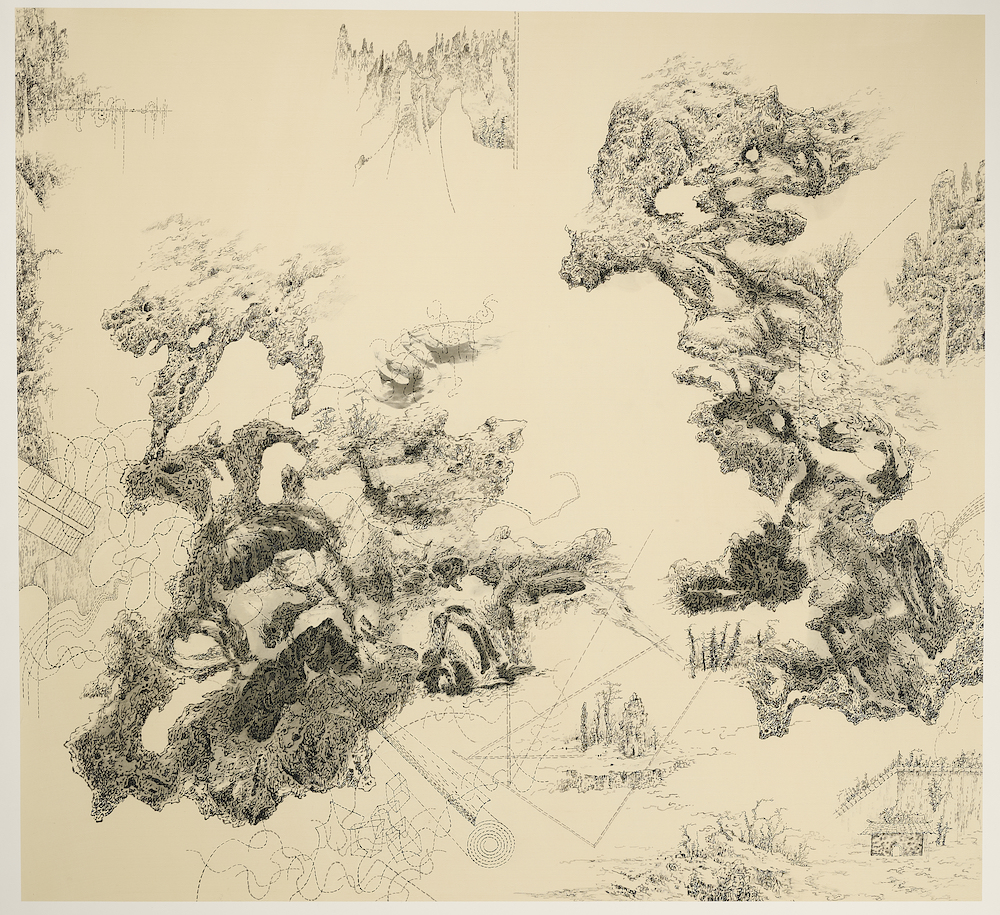
Olympia Auctions’ expert Stephen Loakes said: “We’re delighted to be starting to sell Contemporary Chinese Art. Our first offering of nine paintings is a magnificent expression of the intellectual and artistic daring with which contemporary Chinese ink painters are pushing boundaries while honouring a continuum with the past.”
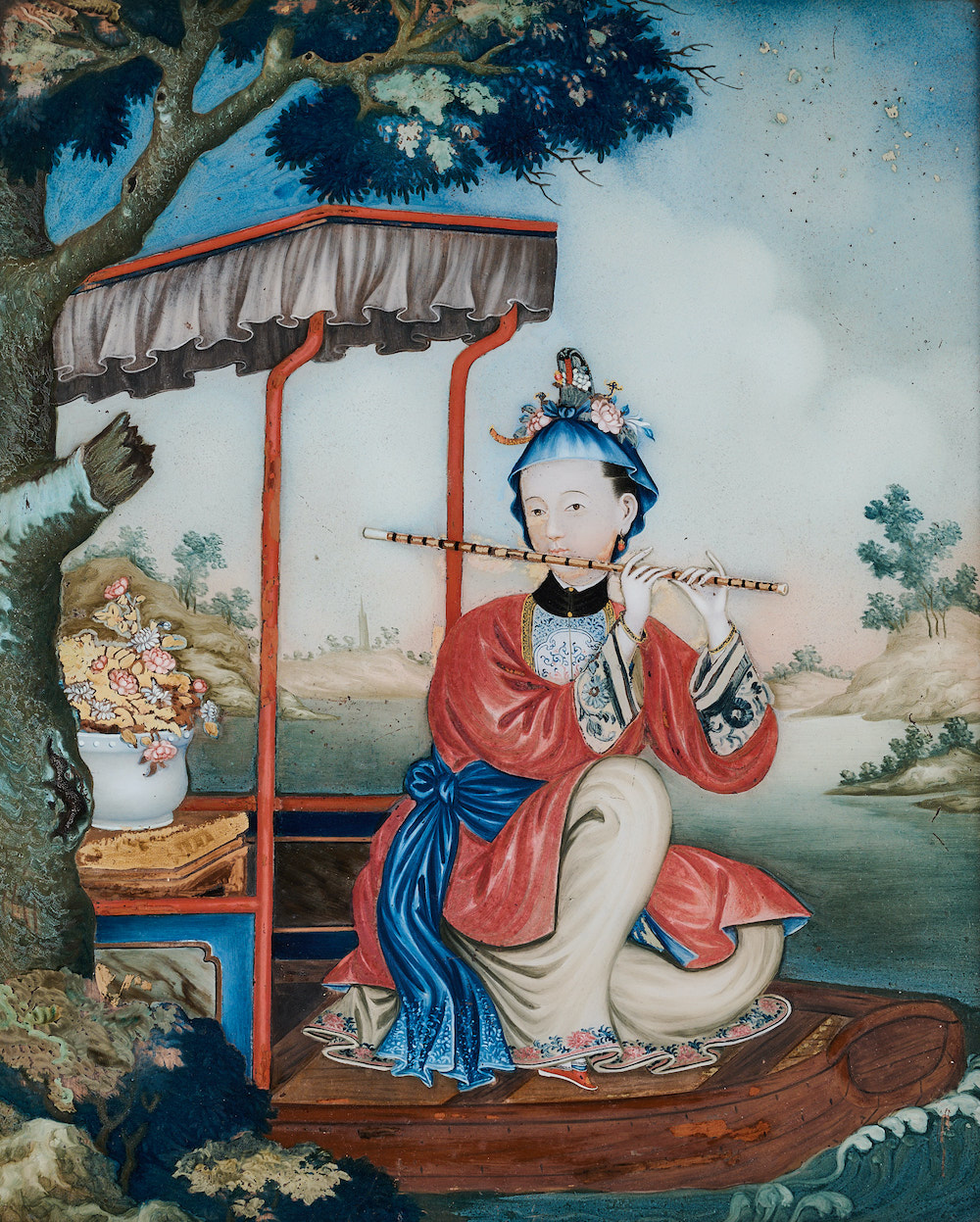
Two examples of reverse glass painting illustrate China’s turbulent past. The first is a colourful Qing export work of a maiden playing a flute, estimated at £2,000-3,000. The second, estimated at £300-500, from 1960, shows Lin Biao, who was instrumental in creating Mao Zedong’s cult of personality, holding aloft Mao’s red book above a line of marching red guards holding red books and rifles. Lin was named Mao’s designated successor as the sole Vice Chairman of the Chinese Communist Party, from 1966 until his death in a plane crash in September 1971.
Paintings by the highly-regarded, second generation Singaporean artist Thomas Yeo (b.1936) from a private UK collection are also included in the auction, acquired directly from the artist in the 1970s. Yeo (who studied at Chelsea School of Art and Hammersmith College of Art and Architecture in the 1960s) describes his method as being like Pollock, starting with an empty canvas, bringing your own experience to what appears there and, in that way, making something out of nothing. Three abstract landscapes have estimates between £300-500 and £800-1,200.
A collection of more than 50 18th and 19th-century archers rings, worn to protect the thumb in Manchu archery and as personal ornament, are offered in groups of up to six with estimates ranging from £200-300 to £800-1,200.
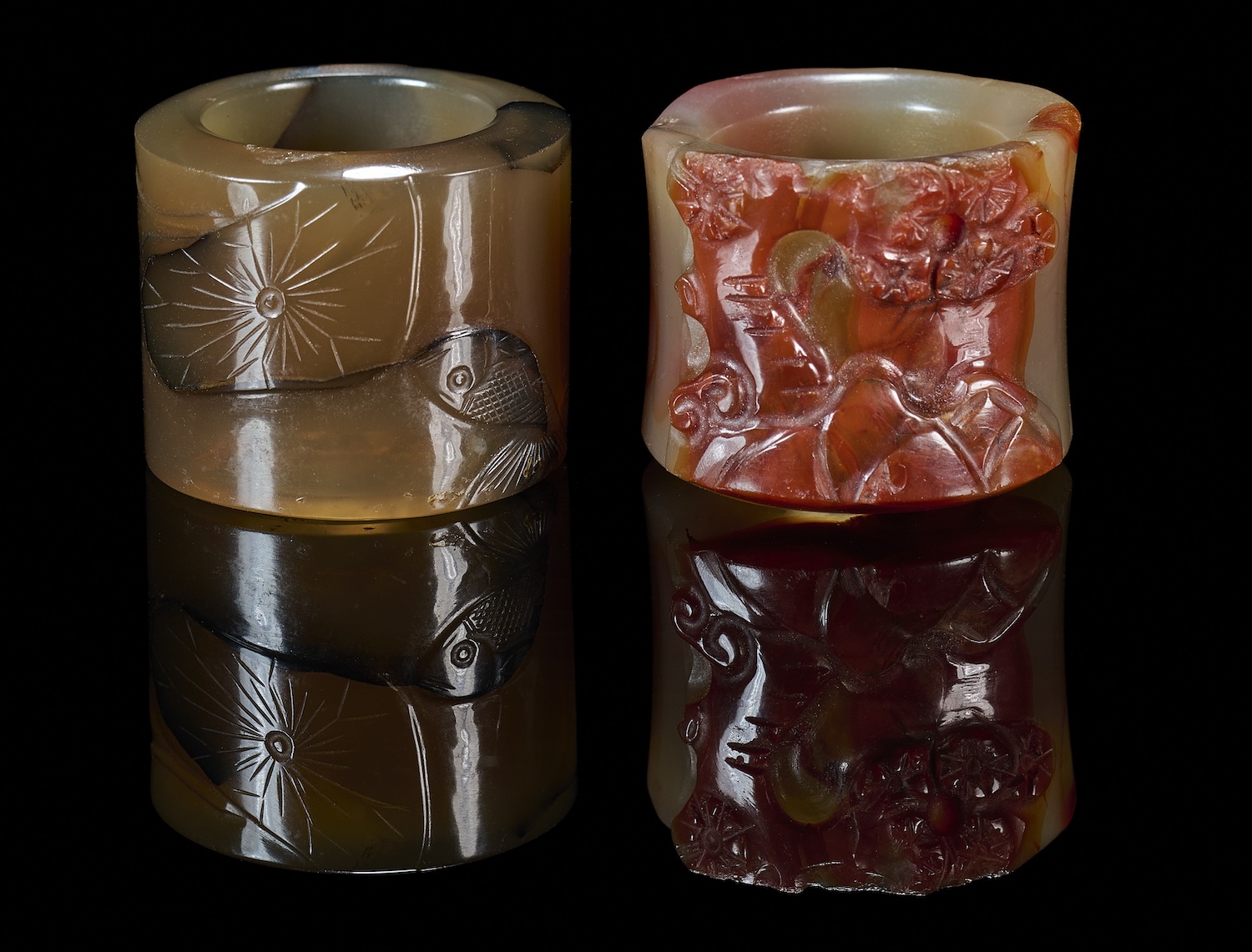
Chinese ceramics include a large Qing famille-verte jardiniere, estimated at £6,000-8,000; a famille-rose “Spring Festival” vase, estimated at £6,000-8,000; a yellow ground “Nine Dragon” vase, with a £3,500-4,500 estimate, and a rare set of eight Daoist Immortals from the Kangxi period 1662-1772, estimated at £8,000-12,000.
Among the Japanese Works of Art, from the collection of author Nobuko Hirose Somers, is a striking ink on silk ‘Dragon amongst Clouds’ attributed to Kano Eishin Yasunobu and carrying an estimate of £500-700.
A highly decorative collection of 50 hand-coloured botanical woodblock prints, circa 1890, are being sold in five lots of 10, each estimated at £2,000-3,000. Each depicting a magnificent bloom, numbered and captioned at the top, these were illustrations commissioned by nurserymen and compiled into plant catalogues.

Japanese Meiji period sculptures include a bronze figure of an archer, signed Gyoko, estimated at £5,000-7,000, and a magnificent pair of trumpeting bronze elephants with a £1,500-2,500 estimate.

Stephen Loakes concluded: “With estimates from £60–12,000, this sale is for serious collectors, new collectors, specialist dealers, interior designers and people who are simply looking for something special. We look forward to providing more information and spending time with anyone who is interested.”

